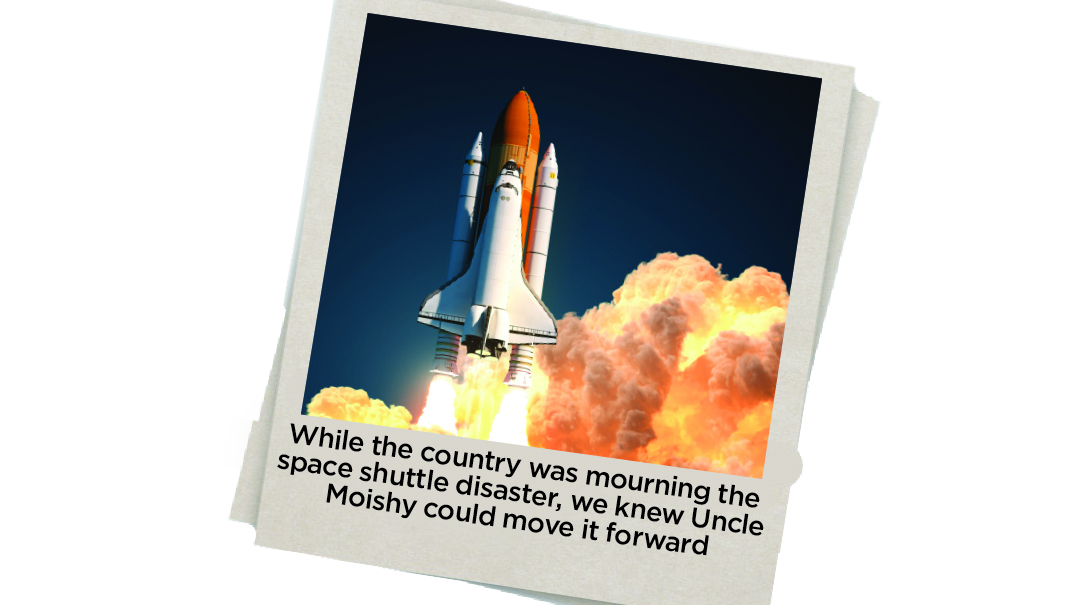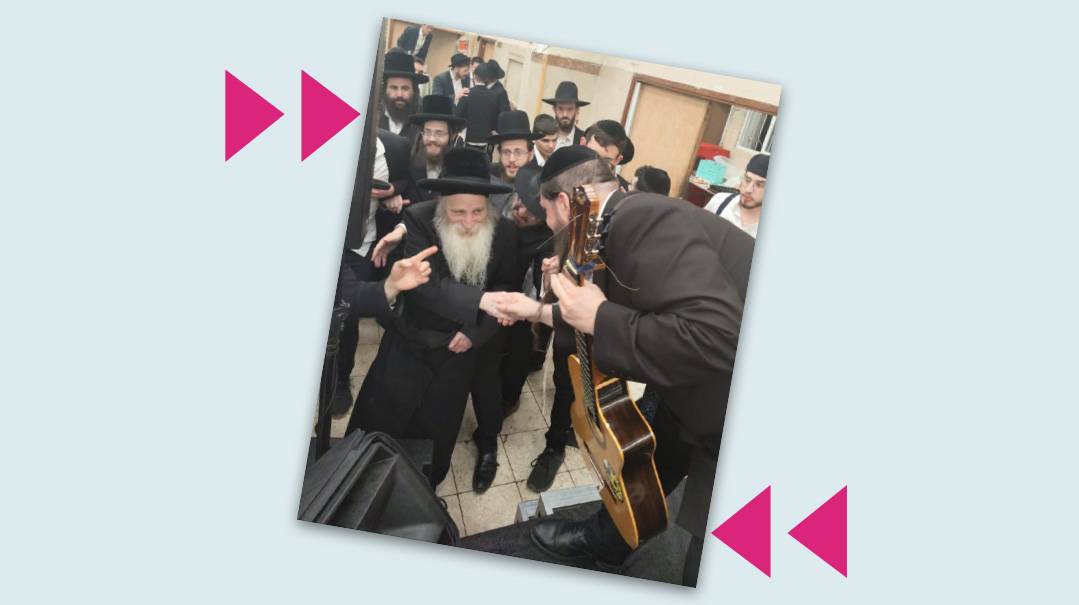The Challenge

While a nation was in paralyzed shock and mourning, we figured out a way to take the challenge and move it forward

It was Tuesday morning, January 28, 1986. I woke up in a Los Angeles hotel room after doing two back-to-back Uncle Moishy concerts, one in Phoenix and one in town. Our team quickly packed and made a dash to the airport for our next leg, a flight to Seattle, along with the other members of the show. This was going to be our first show in Seattle, and we were told that it was already sold out. It was a clear, sunny morning in L.A. as we boarded the plane, but as the aircraft landed about two hours later and taxied toward the gate, I noticed that the flight attendants were involved in whispered conversation with each other, as though something terrible had occurred. I happened to have been sitting in the second row, so I asked one of them, “Is something wrong?” She replied that legally, she was unable to say certain things while aboard the aircraft, but that as soon as I deplaned I would know what was wrong. That certainly piqued my curiosity.
When we entered the terminal, we were greeted by the sight of hundreds of people staring in horror at the public TV screens all around. They kept showing footage over and over of the explosion of the space shuttle Challenger, which had taken off and exploded, just minutes before, in front of millions of television viewers. To remind those who may be too young to remember, not only were the lives of seven astronauts lost that day, just 73 seconds after takeoff, but one of them, Judith Resnick, was the first Jewish American astronaut, and the first Jewish woman, in space.
(I later found out that the reason the flight attendants weren’t able to tell us what was going on was because there’s actually a law that prohibits air personnel from passing along information about any air disasters, even if that particular plane is not involved. In fact, it’s part of the FAA regulations that no movies shown on a flight may contain footage of a plane crash, even if it’s just fictitious. These regulations were established in order not to cause panic on a plane.)
After a while, we made our way to baggage claim and met our contacts from the Seattle Hebrew Academy, who were sponsoring that evening’s show. While we placed our equipment in the van, we were told that the board of the school was deliberating whether or not to cancel the event, due to the national tragedy. They asked me to come down to the school and perhaps be able to add something to the discussion.
We arrived at the school and headed to a conference room, where the school’s principal and some of the board members were assembled: Two of them wanted to cancel the concert, some were undecided, and others thought it would be a good idea to do a toned-down show. Suddenly, the school president looked at me and said, “Hey, Mr. Producer, what do you think?” I told them that the Jewish way of thinking is that G-d forbid, when someone passes on, their neshamah can be uplifted by the good deeds of the living. While an Uncle Moishy concert is fun and entertaining, ultimately, it spreads Yiddishkeit and the love of Torah and mitzvos to young children. I felt that it would be a perfect opportunity to give the soul of Judith Resnick — a brilliant engineer and astronaut whose parents were traditional — an extra zechus, rather than simply letting the kids go home and do nothing but watch the tragedy over and over.
Instantly, the president said, “I totally agree with Mr. Producer. Let’s go on with the concert as planned.”
The sold-out show began with a chapter of Tehillim for the departed souls, and the president introduced us by repeating the message that this was an opportunity for everyone to do a bit of good in the world, for Judith and the other six American heroes. Every few songs, we stopped our scheduled routine in order to remind the audience of what the gathering that night was trying to accomplish. The event became a real kiddush Hashem, especially as the parent and student body of the school was mixed — from frum to nonobservant — and many were also mourning the death of schoolteacher Christa McAuliffe, a dedicated educator of children who flew on the Challenger as part of a teacher-in-space project.
After the event, the school president called me over and said, “Mr. Producer, I like the way you think.” (I chuckled silently because I realized he actually had no idea what my name was.) In the end, everyone was happy — because while a nation was in paralyzed shock and mourning, we figured out a way to take the challenge and move it forward.
(Originally featured in Mishpacha, Issue 846)
Oops! We could not locate your form.












